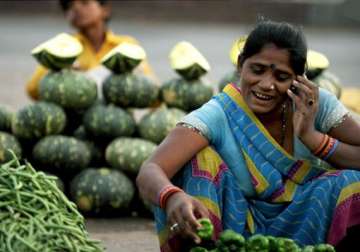Inflation cools to zero, but not good enough for rate cut
New Delhi: It so happened in 2014 that inflation hit a perfect-zero for wholesale prices and the retail one also more than halved to 4.4 percent, still it was not good enough for the much-awaited
New Delhi: It so happened in 2014 that inflation hit a perfect-zero for wholesale prices and the retail one also more than halved to 4.4 percent, still it was not good enough for the much-awaited cut in interest rates.
As the ghost of the past -- when inflation levels were at sky-high levels -- continued to haunt the macroeconomic scenario, the policymakers took a view that it was the 'base effect' of high price rise rates a year ago, that has resulted in so low inflation levels.
Accordingly, the policymaker -- the RBI -- will wait for a sustained decline in this key macroeconomic measure in the new year before pressing the 'cut' button on interest rates -- for which the industry and government made persistent demands throughout the year 2014.
Amid falling prices of crude oil and other commodities in the international markets, indications are that the inflation would continue to decline, at least on retail side, where the last measurement stood at 4.4 percent for the month of November -- as against almost 9 percent at the start of 2014.
The inflation based on wholesale prices (WPI) dipped to zero level in October, from over 5 percent in January 2014, and a further decline could result in negative inflation or deflation, although economists do not anticipate deflationary side effects for the overall economy as yet.
Still, the decline in both inflation measures has come as a big relief to the government and consumers, who had to reel under the double-digit inflation during most of 2013.
Falling global crude oil prices on supply glut has been one of the major contributors towards falling inflation in India as diesel is a key input in transporting commodities.
Analysts at Bank of America Merrill Lynch said the inflation is expected to be within RBI's target levels for January 2015 as also for January 2016.
"We think inflationary pressures will be limited to pulses that are lagging...There will be greater comfort that 'imported' inflation is abating as the Fed rate hike expectations keep global commodity prices in check," they said in a research note.
Girish Vanvari, Co-Head of Tax at KPMG in India, said, "In 2015, much would depend upon the oil prices and the supply side situation. If oil prices remain stable here on, there is good possibility of falling interest rates which would further have a trigger effect on inflation which could fuel growth."
RBI says that inflation remained a challenge during the year and kept the policy rates unchanged despite demands from various quarters to lower it in the face of muted economic growth.
RBI expects inflation to retain some momentum over the next 12-month period and hover around 6 percent.
"...Outlook for inflation in the medium-term, projections at this stage will be contingent upon expectations of a normal south-west monsoon in 2015, international crude prices broadly around current levels and no change in administered prices in the fuel group, barring electricity," RBI said.
On the food front, the current government has shown a lot of prudence, by offering low MSP's and off-loading excess stocks, said Kapil Gupta, Economist, Edelweiss Securities Ltd.
"We expect this to continue. Further, India is witnessing extremely positive terms of trade owing to correction in crude and international commodities. This would have significant cascading impact. Also rupee has stabilised.
"Hence, given the dynamics one should expect disinflation to continue, despite growth recovery taking place," he added.
Finance Ministry's Mid-Year economic review has expected retail inflation to be in range of 5.1-5.8 percent till March 2016.
However, India Inc has been clamoring for a rate cut from RBI for a long time as economic growth remains a concern in the face of falling factory output and tapering demand.
The industrial production contracted by 4.2 percent in October, mainly on account of poor show by the manufacturing sector and a dip in the output of capital as well as consumer goods, as per the latest data.
Dismayed over contraction in factory output, industry has demanded that Reserve Bank must slash interest rates urgently to spur demand while re-emphasising the need for faster roll-out of reforms announced by the government.
Overall, 16 of the 22 industry groups in manufacturing showed negative growth in October.
Finance Minister Arun Jaitley had termed high interest rate a "singular factor" responsible for slowdown in manufacturing sector.
